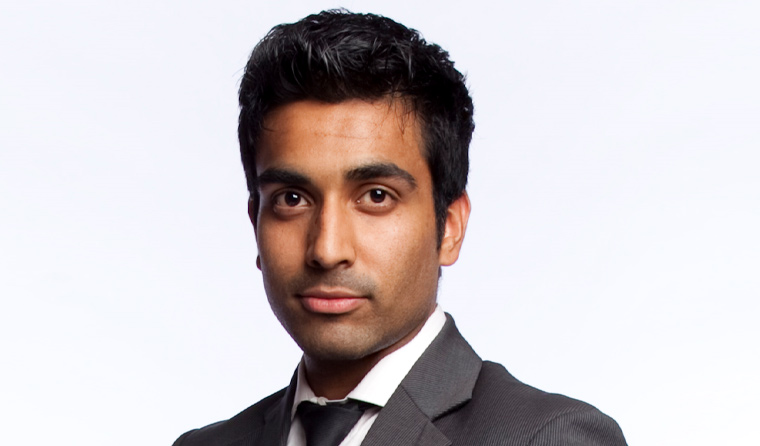News
GPs creating their own PPE solutions
Some makeshift measures include buying masks and goggles from the hardware store and using raincoats as gowns.
 GPs have anecdotally visited hardware stores in order to source P2 and N95 masks.
GPs have anecdotally visited hardware stores in order to source P2 and N95 masks.
‘Bunnings is the go-to place.’
That is Dr Vyom Sharma, a GP from Victoria.
He is talking to newsGP about the numerous ways in which GPs around Australia are utilising makeshift personal protective equipment (PPE).
Dr Sharma said he personally knows many GPs who have visited the hardware store in order to source P2 and N95 masks along with protective eyewear in the form of plastic goggles.
‘The only reason I haven’t been is that they sold out [of masks],’ he said.
Other anecdotal makeshift measures include GPs putting masking tape over their surgical masks and purchasing raincoats to wear as disposable gowns.
‘The fact that GPs are finding solutions is what makes it a bittersweet story for me,’ he said.
‘On one hand, it shouldn’t have come to this but, on the other hand, who better could the problem have come to than the ingenuity of GPs in Australia?’
Dr Sharma said some GPs are also having to go to ‘quite extreme’ measures to source their own PPE, registering with the Therapeutic Goods Administration (TGA) to gain approval for devices intended for distribution for commercial interest.
‘We’re having to resort to these quite inefficient channels to get equipment to protect ourselves and, more importantly, our patients,’ he said.
‘These are not the things a sole trader should have to do.’
Dr Sharma said GPs’ innovation is ‘quite clever’.
‘But we also have to bear in mind this is compensation for a problem that really shouldn’t have occurred in the first place,’ he said.
‘They’re great solutions, but they are also sub-optimal.’
In an ideal world, Dr Sharma said GPs should utilise telehealth for all appointments that can be done that way, and face-to-face appointments for those needing such care.
However, he said lack of adequate PPE is standing in the way.
‘It’s quite literally affecting patient care,’ he said.
One particular response to lack of PPE that concerns Dr Sharma involves stories of GPs who are testing patients for COVID-19 without adequate safety measures in place.
He said this is currently a common conversation among doctors.
‘And of course no one is going to be admitting to it, but you can sense it in the air,’ he said.
Dr Sharma said performing such procedures without PPE is not only putting the individual practitioner at risk, but also the community at large.
‘[Doctors need] to use medical supplies in a way that is evidence-based and to everyone’s benefits, and not fall prey to the martyr complex that we often carry around,’ he said.

Dr Sharma called many GPs’ innovation ‘quite clever’. ‘But we also have to bear in mind this is compensation for a problem that really shouldn’t have occurred in the first place,’ he said.
Scrimping for PPE is common in the current landscape, a Melbourne-based dermatologist, who prefers to remain anonymous, told newsGP.
‘Everybody’s worried about not having enough [PPE] and people are desperate for masks and gowns,’ he said.
Due to this desperation, this doctor said medical professionals are ‘accessing non-standard ways’ to secure such equipment.
‘There’s a lot of people bringing things in individually and they’re not TGA-approved,’ he said.
He said the way PPE is currently being used in a makeshift manner means its efficacy is also questionable.
‘People are trying to save their PPE and re-use it … or dry it or put it in a sealed plastic container [and re-use it],’ he said.
‘There’s all these different methods people are trying to use.’
The dermatologist said doctors are also banding together to organise bulk-buying of PPE such as masks, gloves, gowns and hand sanitiser at their own expense.
Meanwhile, others are so concerned about lack of PPE that they are considering stopping seeing patients face-to-face altogether, the dermatologist said.
Some people are obsessed with not getting it, [they] are not wanting to practise at all,’ he said.
‘And of course there are ethical considerations about that, and that’s predicated on one’s own risk factor. If you’re young, your risk is low, if you’re older and have health issues and you’re a medical practitioner, you don’t want to be exposed.’
RACGP President Dr Harry Nespolon has been tirelessly advocating for PPE throughout the pandemic, understanding it is a key concern among GPs during the pandemic.
On 20 March, he said his priorities for general practice during the pandemic are securing telehealth and better access to PPE.
Significant measures have now been put in place to address both those priorities.
Telehealth is now available for GPs to bulk bill phone or video consultations for all patients.
And recent news that more masks are on their way may help relieve some of the strain of PPE shortage.
Federal Health Minister Greg Hunt announced that more than 11 million masks will be distributed from Wednesday 8 April to healthcare workers on the frontlines of the coronavirus pandemic.
That includes 2.3 million masks to be distributed to the Primary Health Network (PHN) and 75,000 for frontline services for Aboriginal and Torres Strait Islander people.
Dr Sharma said the promise of these surgical masks may help relieve some of the stresses of GPs facing such shortages, but hopes more will be done to enable adequate PPE to those who need it.
In the meantime, he said, unless a GP has adequate PPE they should not be risking their own health by potentially exposing themselves by performing testing on patients with suspected COVID-19.
‘We can’t afford to be down even one GP,’ he said.
Log in below to join the conversation.
coronavirus COVID-19 gowns masks PPE
newsGP weekly poll
As a GP, would you benefit from further education about identifying and supporting patients impacted by intimate partner violence?